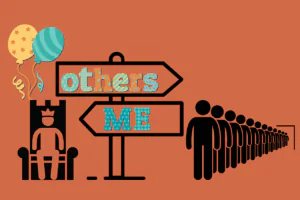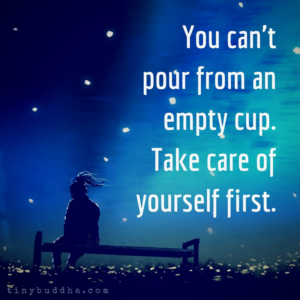Originally posted in August, 2020
We all have our guilty pleasures. For some it’s using a drug to find a pleasant high. However, what do you do when someone you love slips from occasional use to addiction? It can become an ugly struggle quickly, negatively affecting relationships and health. When you love someone, it’s only natural to want to help. But unfortunately, help may not be received well. That makes it difficult to know where to start. Keep reading to learn how to help someone with drug addiction.
Signs of Drug Abuse
If you are wondering how to help someone with drug addiction, it’s essential to know the signs of substance abuse problems. The signs of addiction can vary from person to person and can differ depending on the addiction, be it drugs, alcohol, or gambling, for example.
Many people struggling with addiction hide their vices from family, friends, and co-workers, keeping the depth of their struggles as secret as possible. It’s easy to assume that your loved one’s addiction isn’t as bad as it actually is. However, ignoring addiction is not the best solution. Here are some common signs of addiction:
Behavioral Warning Signs of Addiction
- Increased trouble at work or school
- Increased tardiness or missed days of work or school
- Becoming more isolated or secretive
- Changes or disruptions in sleep habits
- Financial problems or increased debt
Physical Warnings Signs of Addiction
- Changes in mood or activity level, for example, overly active or lethargic
- Dilatated pupils or red eyes
- Excessive sniffing or chronic runny nose
- Looking pale or sickly
- Weight loss or looking undernourished
- Repetitive speech patterns or movements
- Changes in personal care or hygiene
Emotional Warning Signs of Addiction
- Unusually argumentative or irritable
- Defensiveness
- Inability to handle any level of stress
- Loss of interest in valued activities or people
- Easily confused
Related Reading: Stages of Addiction
How to Help Someone with Drug Addiction
Helping someone with drug addiction can be very challenging. As you approach the addicted person with your concerns, they may:
- Rationalize or justify their behavior or make excuses to explain what is going on.
- Minimize the issue, admitting casually to the problem, but not acknowledging or accepting the seriousness of the addiction.
- Blame others or events for their changes in behavior.
- Divert your attention or change the topic to avoid discussing the problem on any level, often switching the focus to a problem behavior of yours.
- Begin avoiding you to prevent discussing the problem.
- Deny the problem even exists.
 You may be met with anger or hostility when you confront someone with an addiction. Most people with addiction will feel defensive, and some might turn aggressive – even if you approach them in the best, most helpful way possible. You can quickly begin to feel hopeless when trying to get your loved one help. That’s because it can be a battle just to get them to even to admit there’s a problem.
You may be met with anger or hostility when you confront someone with an addiction. Most people with addiction will feel defensive, and some might turn aggressive – even if you approach them in the best, most helpful way possible. You can quickly begin to feel hopeless when trying to get your loved one help. That’s because it can be a battle just to get them to even to admit there’s a problem.
However, there are ways you can help someone with drug addiction or any addiction:
Don’t Enable
Watching someone spiraling deeper into addiction is not easy. It’s natural to want to help your loved one in any way possible. However, much of your well-meaning help in actuality supports their addiction to continue. Taking over responsibilities, giving money, prioritizing the addict’s needs over your own, ignoring their behavior, or covering for it are all signs of enabling an addict. It’s essential to break the enabling cycle, because in order to start working toward recovery the addict must begin to realize the reality of their situation and the real consequences of their actions.
Use Compassion
Criticizing someone with an addiction can be counterproductive because it can trigger shame and spur them to isolate further. However, showing them love and compassion opens the door for them to feel comfortable to open up. This can allow for a meaningful conversation. You can share how their actions are affecting you and others around them. Allowing for a safe and supportive space can make it a little easier for an addict to seek help.
Don’t Guilt or Shame
Many addicts personally struggle with guilt and shame, which may have lead them towards addiction to cope. It’s easy to fall into shaming the addict when you are frustrated and hurt. But shame is never accepted well. Shame is a feeling that hurts. Shaming an addict will only negatively affect your relationship with them and push them further away from recovery.
Encourage Healthier Habits
Addiction changes people’s priorities, and it’s common to see a decline in physical and mental health. Mental health issues like depression, anxiety, and addiction negatively feed into one another. To begin to work towards recovery, co-occurring disorders like depression and anxiety need to be addressed.
Encouraging your loved one to seek treatment for their mental health issues can help them understand the harmful toll addiction plays in their life and also address the root issues that may have led to their addiction in the first place. Also, encouraging them to eat healthier, exercise, and interact with others will help them feel better and more stable. This can support a realization that they want a healthier lifestyle overall.
Take Care of Yourself
You cannot pour from an empty cup. Watching someone spiral into addiction can take an emotional, mental, and physical toll on you. Maintaining a balance and placing priority on self-care is necessary and is not selfish. Addiction isn’t a sole endeavor that just affects the addicted person. Rather it is a disease that negatively affects families, friendships, and relationships. Taking care of yourself and reaching out for support from friends, therapy, or even support groups like Al-Anon, Nar-Anon, or SMART Recovery Family & Friends can help fuel you to support your loved one better.
Remain Positive
Addiction is manageable and treatable. Your loved one can work towards recovery. However, it is not easy. And when hope fades, replaced with negativity, so do the chances of recovery. Hope isn’t just crossing your fingers, praying for the best. Hope and faith will guide you to find meaningful action and motivate you to continue to help and support your loved one.
Needing help and support is not a weakness. Seeking help, for yourself or your loved one with drug addiction, is an essential step towards positive change.
If you’re in northern Illinois, please reach out to us at our Glen Ellyn, Jefferson Park (Chicago), or Sycamore offices. Help is available, and speaking with an addiction counselor can put you on the right path for success.
Rhonda Kelloway is the owner and principal therapist at Life Care Wellness, a group psychotherapy practice in Glen Ellyn, Sycamore, and Chicago (Jefferson Park neighborhood), Illinois. She is a trauma specialist utilizing a Somatic Experiencing framework to utilize the body’s wisdom in healing. She also uses EMDR and a variety of traditional psychotherapy approaches in her work. In addition to being a psychotherapist, she is a trained divorce and family mediator.





